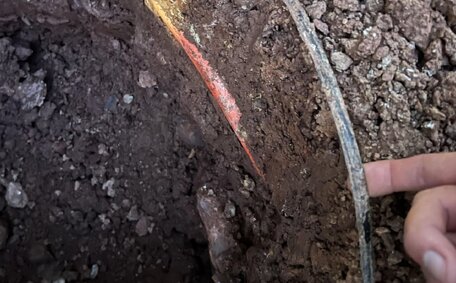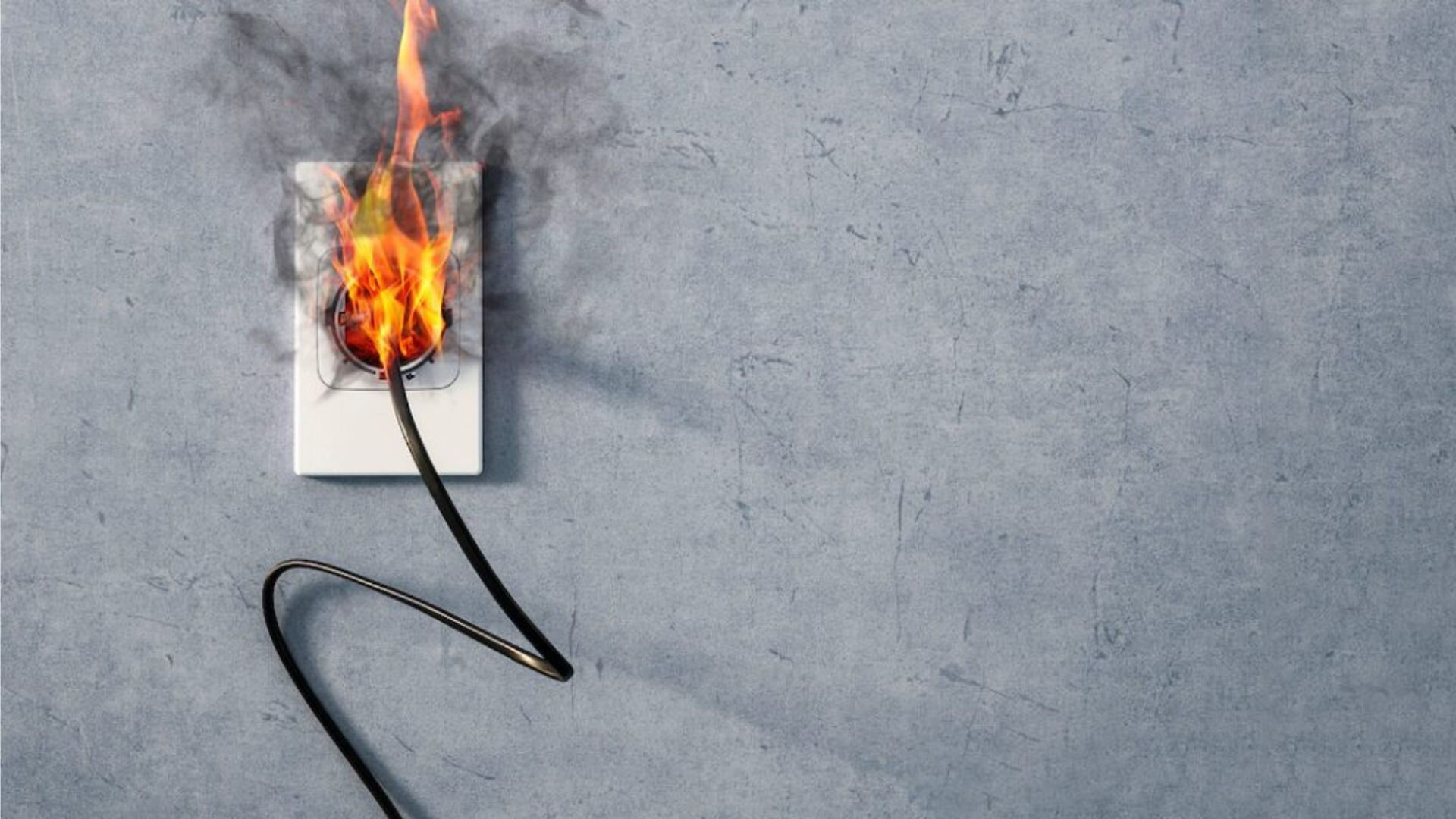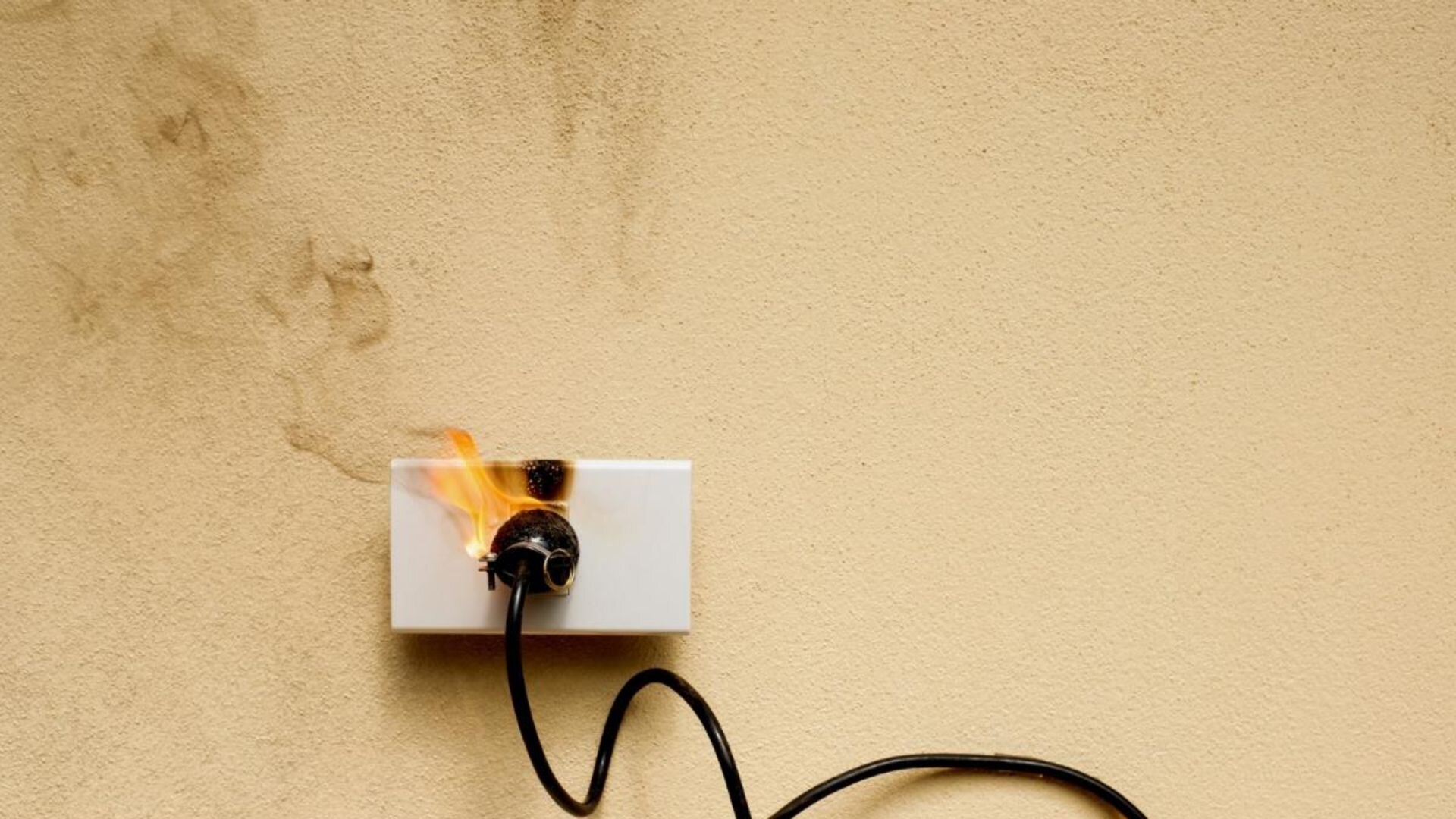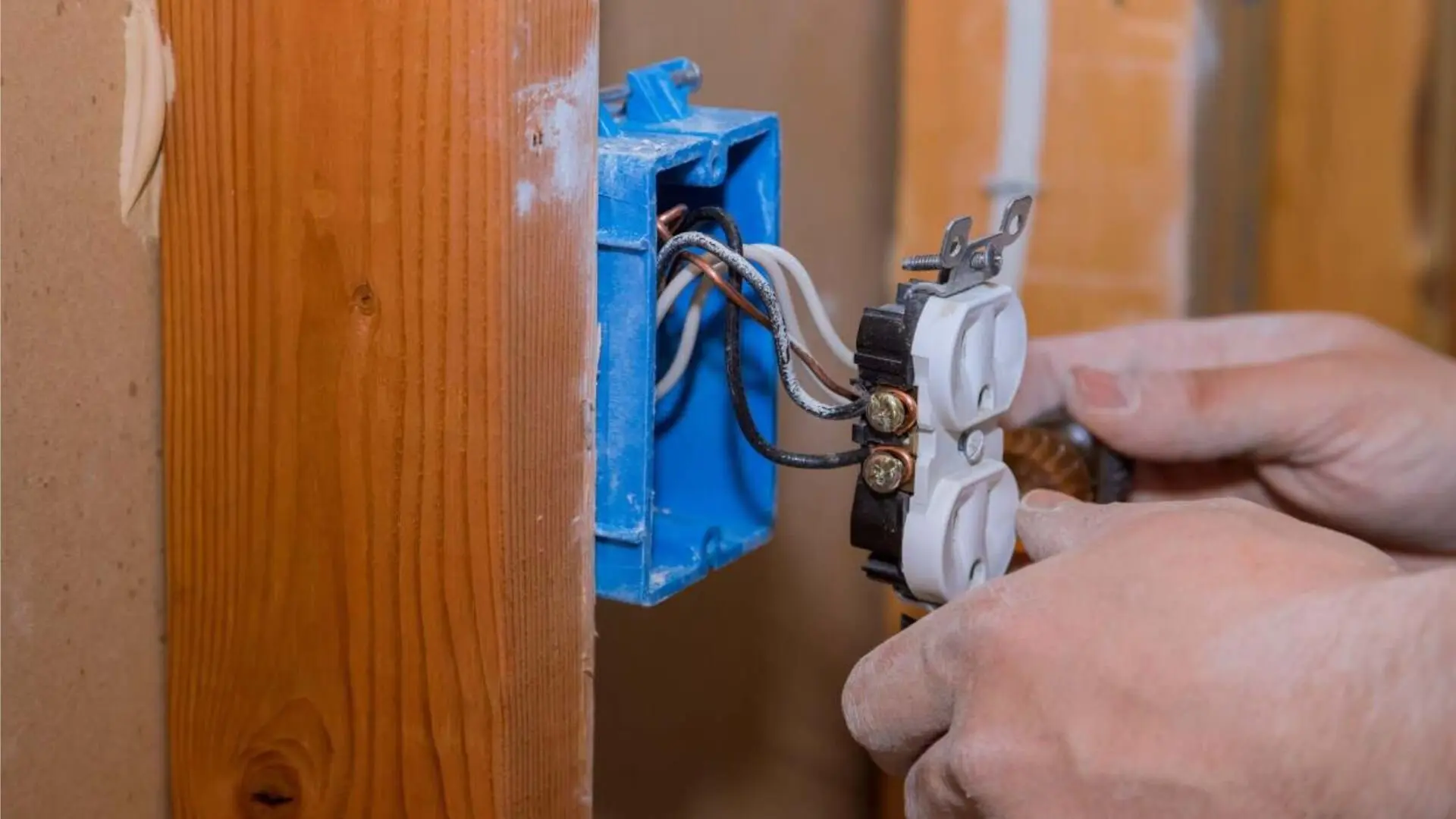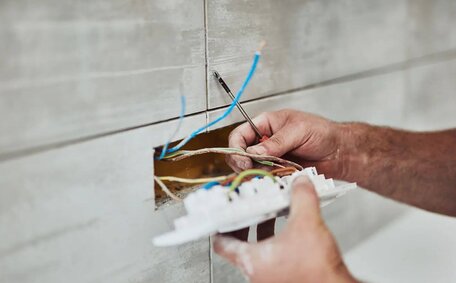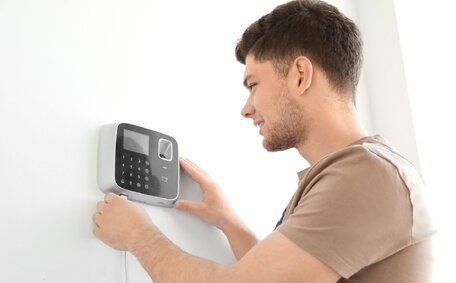Finding out your electrical outlet is hot, melting, or sparking can be quite unnerving. It’s a sure sign that something’s amiss in the wiring and requires urgent action to prevent a fire. But what actually causes an outlet to overheat or spark?
In this article, we’ll cover the causes and warning signs of faulty outlets and walk through diagnostic steps you can take to get to the bottom of the issue. We’ll also provide tips on when you should call in a professional electrician versus attempting DIY repairs.
Dealing with electrical issues requires a keen focus on safety. In this guide, we’ll pinpoint essential precautions, equipping you with vital information to tackle sparking outlets quickly and avert potential emergencies.
Why is My Power Outlet Hot or Sparking
Several factors could lead to a hot or sparking outlet. Often, it’s due to wiring problems like loose connections, circuit overloads, or electrical arcing. Identifying these culprits can help ease worries about harmless sparks. Here are some common issues:
![2024 01 Power Outlet Burning Power Outlet Burning]()
Loose wire connections
Loose wiring is one of the most common reasons you may find a hot or sparking outlet. Vibration and normal movement over time can cause electrical connections to become loose. This creates increased resistance, which then generates excessive heat. Loose electrical wires can also lead to arcing and sparks as electricity jumps across the gaps.
Outdated wiring unable to handle an electrical load
In older homes, dust and debris can accumulate around outdated wiring. This buildup, coupled with potential short circuits in sockets, might spark fires. Such scenarios clearly indicate it’s time to refresh your electrical system.
Homes built before the 1960s often need updated 60-amp electrical panels and wiring made of materials like aluminium. This older wiring must safely run multiple high-wattage appliances and devices used in modern homes. Attempting to draw too much power through undersized, outdated wiring creates heat build-up and electrical shorts.
Too many devices are plugged in, or the circuit is overloaded.
Plugging too many appliances, devices, and electronics into one outlet or circuit can easily overload it. The cumulative electricity demand exceeds the circuit’s capacity. This results in overheating at multiple outlets and connections, which can melt plastic and generate sparks.
Faulty outlet or other wiring issues
At times, the outlet may be damaged, faulty, or improperly installed, creating a fire risk. Problems such as loose screws, incorrect wire gauges, poor connections, or cracked plastic can lead to overheating. Additionally, issues like crossed wires, conductor damage, or missing ground wires might also cause sparking.
What Are The Warning Signs?
A hot or sparking electrical outlet exhibits some clear warning signs that alert you to this dangerous issue. The first and most obvious sign is an outlet that is physically hot or warm to the touch.
The outlet surface or plastic face may discolour or even partially melt from excessive heat. You may notice a burning or electrical smell coming directly from the outlet. When plugging in appliances, visible outlet sparks, arcing, or flickering lights can indicate connection problems.
![2024 01 Fire On Electrical Outlet Fire Electrical Outlet]()
Another warning sign is circuit breakers that frequently trip when reset. This usually means the outlet is overloaded with too many connected devices. Finally, any lights or outlets downstream that randomly flicker or lose power signal loose wiring connections. Never ignore these warning signs – have an electrician inspect sparking or overheating outlets immediately before a fire hazard occurs.
Diagnosing the Issue
Diagnosing the cause of an overheating or sparking outlet begins with safety first. Turn off the outlet’s circuit breaker, which supplies power to the outlet to reduce electrical shock risk. Then, inspect the outlet wiring for any signs of damage like scorch marks or melted insulation.
Check how securely attached the wires are and whether any are loose. Test outlets with a multimeter or voltage tester to measure voltage and electrical current flow. This can identify if there are any power drops, which would indicate faulty wiring.
Note that if certain outlets on the same circuit have lost power entirely, this points to a tripped breaker or open neutral. Examine the outlet itself for any cracked, burnt, or broken components.
If the outlet wall plate is hot, the issue may be caused by incorrectly installed wires touching the metal box. Assess the age of the wiring to see if undersized cables may be the culprit. Document any observations to narrow down the potential cause before calling an electrician.
When to Call an Electrician
Safely diagnosing and repairing electrical issues requires training and expertise. While minor outlet problems can be DIY, it’s best to call a professional electrician if you observe any major warning signs.
Sparking, melted wires, frequently tripped breakers, and flickering lights indicate a significant and potentially hazardous problem. If you are unable to determine the exact cause after inspecting and testing the hot outlet, it’s best to have an electrician investigate further.
They have the tools and knowledge to diagnose the issue fully. Upgrading old wiring that can’t handle current electricity loads also requires hiring an electrician.
Any repairs involving the main electrical panel, installing new wiring, or safely replacing a damaged outlet or wire should always be left to the professionals. When in doubt, call an electrician - it’s better to be safe than risk injury or electrical fires with faulty electrical repairs.
Avoiding DIY Electrical Repairs
While simple outlet issues may seem straightforward to repair yourself, they are not recommended for safety reasons. DIY electrical repairs can be extremely hazardous if wiring connections are handled improperly. Even basic tasks like replacing a damaged outlet carry risks like electrocution and fire if incorrect wiring occurs.
![2024 01 Diy Fixes Power Outlet Diy Fixes Power Outlet]()
Unless you are a licensed electrician, avoiding DIY repairs involving any wiring work is best. The dangers posed by accidental contact with live wires or incorrect connections are not worth the potential cost savings. It is far safer to have an experienced, qualified electrician inspect issues and make any needed repairs, no matter how minor they seem. They have the proper training and equipment to diagnose and resolve electrical problems safely.
Don’t gamble with DIY fixes when it comes to your home’s electrical system. Engage a professional electrician to resolve any issues you uncover—it’s all about keeping you safe.
Preventative Measures
Preventative maintenance and proactive safety measures are the best way to avoid overheating or sparking electrical outlets. Have your home’s electrical systems fully inspected by a licensed electrician when moving into an older property to identify any outdated wiring needing replacement.
Upgrade undersized electrical panels to 200 amps to handle greater capacity. Only plug high-wattage appliances like air conditioners and heaters into their own dedicated outlet to prevent overloads.
Distribute devices evenly among available outlets and use only power strips with surge protectors. Ensure all electrical work is done properly by qualified electricians.
Check outlets occasionally for signs of damage or excess heat. Replacing old outlets every 10-15 years can prevent wear-and-tear failures. Being diligent about electrical safety and maintenance will minimise the chances of dangerous faults occurring.
Don’t Get Burned by Faulty Wiring
Dealing with a hot, melting, or sparking electrical outlet is an alarming situation that requires prompt troubleshooting and repairs for your safety. As we’ve covered, the most common causes stem from loose connections, overloaded circuits, faulty outlets or wiring, or cables that can’t handle the electricity load. Pay attention to warning signs like overheating, sparking, tripped breakers, and flickering lights to address issues before a fire hazard develops.
While some minor outlet repairs can be DIY, having a professional electrician diagnose and replace damaged wiring or outdated electrical panels is best. At Bright Force Electrical, our licensed electricians have the advanced tools and extensive training to pinpoint the causes of overheating outlets and make all necessary repairs.
We can upgrade old wiring in your home and add protective devices to prevent future issues. Take your time with do-it-yourself electrical work. Call the experts at Bright Force Electrical if you have any concerns about your outlets overheating, melting, or emitting sparks. We’ll quickly restore safe electrical operation so you can breathe easier.
